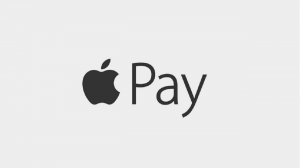APPLE BETS ON MOBILE PAYMENT
October 27, 2014
 Last September 9th, the new iPhone and the Apple Watch drew the attention during the Apple’s CEO keynotes. But none of them were a revolution: the new iPhone is an incremental innovation and the Apple Watch will find its usefulness only with the applications we will develop for it.
Last September 9th, the new iPhone and the Apple Watch drew the attention during the Apple’s CEO keynotes. But none of them were a revolution: the new iPhone is an incremental innovation and the Apple Watch will find its usefulness only with the applications we will develop for it.
No, the real “revolution”, or at least the most interesting novelty was elsewhere: in the launching of the Apple Pay service and the systematic integration of a NFC chip in all Apple devices that allows everybody to pay without contact with his smartphone.more–>
Apple, without being a pioneer in that area (Google, Starbucks, Telco Operators, Wal-mart and so on did it before… without real success), might well pick up the establishment. Why?
First, the Apple Company has a real know-how in customer’s usage and expectations. With Apple Pay, Apple seeks to give all the guarantees of security to the consumer: credit card information is encrypted, payment is validated using fingerprint recognition, and last but not least, Apple will not have access to the consumer purchase behaviour and history like other companies.
Then, Apple has the capacity to enroll partners to maximize its products dissemination. They convinced the largest banks to adopt its new service by agreeing to share the commission on each transaction if banks agreed to use Apple Pay. Why would banks accept such a deal? It is because Apple has a potential of 800 million of iTunes users which registered credit card information into Apple’s music platform. So, it is like, follow me or leave me … and you are dead! This enormous customer database increases the success rate of Apple Pay. In addition, Apple has built partnerships with merchants, like McDonald’s for example.
Therefore, the company founded by Steve Jobs put all the advantages on its side to set the rules of mobile payment.

 English | EN
English | EN 